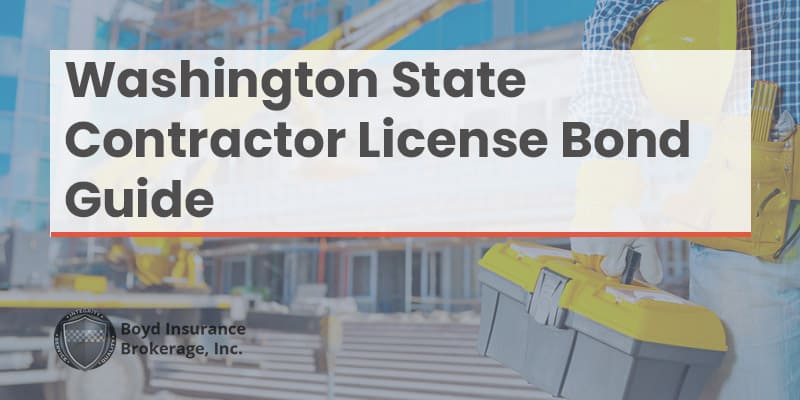Does your business need a surety bond? A surety bond is a different type of insurance-like product. It is designed to ensure that a contractual agreement or obligation is fulfilled to the satisfaction of all parties involved. At Boyd Insurance Brokerage Inc, we handle surety bonds for businesses and contractors. Let’s take a look at what a surety bond is and why you’d need one.
What Is a Surety Bond?
A surety bond is an agreement between three entities, including the individual or business that purchases the bond, the business or individual for which the work is being performed, and the insurance company. These parties are often denoted as the principal, the obligee, and the surety. The principal or business takes out the bond as a guarantee that they will perform the work in accordance with the contracts and to the obligee’s satisfaction. If the obligee or business/individual is not happy with the work performed or believes that all of the obligations of the contract were not fulfilled, they can make a claim against the bond. The surety or insurance company is the entity that writes the bond and guarantees that the principal meets all of its obligations.
What Does It Mean When a Company Is Bonded?
When you view a company’s website, they often say they are licensed, bonded, and insured. Licensed means that they have a business license. Insured means they have all the required levels of insurance in case an accident or incident occurs. When they say they are bonded, it means they’ve taken the additional step of purchasing a surety bond that guarantees the company will perform a task and fulfill all of their obligations when it comes to completing that task satisfactorily. In some instances, a surety bond may be required by a legal contract or as part of a licensing requirement.
What Is Protected Under a Surety Bond?
It’s important to note that surety bonds protect different things depending on the type of bond, the language in the bond, and the language in the contract. However, they are all designed to protect the customer against a financial loss in the event that the terms of the contract are not completed or fulfilled.
Are There Different Types of Surety Bonds?
Three types of surety bonds include:
- Commercial Bonds – Commercial bonds are a type of general bond that’s designed to ensure that all the company’s or individual’s professional obligations are met, and the customer is satisfied.
- Construction or Contractor Bonds – Construction bonds are taken out by construction companies. These bonds are designed to ensure that each construction project is completed in accordance with the contract that was signed for the project.
- License and Permit Bonds – License and permit bonds can be required as part of the licensing processes. These are usually required by city, county, state, and/or federal government agencies.
What Is a Contractor License Bond?
A contractor license bond is required for all general and specialty contractors in the state of Washington. These are designed to ensure that the customer is compensated for any financial losses if the contractor fails to meet the obligations of the construction contract, if the customer is unhappy with the end result, and if any of the customer’s property is damaged by the contractor.
- General Contractors – General contractors are required to have a bond that is at least $12,000.
- Specialty Contractors – Specialty contractors are required to have bonds with a minimum amount of $6,000.
What Government Entity Regulates Contractors and Contractor Bonds in Washington?
The Washington State Department of Labor and Industries regulates contractor bonds. L&I requires that all contractors are licensed with the state, bonded, and insured. There are two types of contractors:
- General Contractor – Able to perform most types of construction work and may hire subcontractors to perform certain types of work.
- Specialty Contractor – A contractor that only does a specific type of work, such as drywalling, roofing, HVAC, plumbing, and painting. Specialty contractors are not allowed to hire subcontractors.
Are There Different Types of Contractor Bonds?
Contractor bonds tend to fall into two categories, including bid bonds and performance and payment bonds.
- Bid Bonds – Bid bonds protect the customer when companies are bidding on projects. In general, companies tend to go with the contractor that has the lowest bid. If the contractor fails to sign the contract or does not meet the requirements of the project, the customer must often go with the next highest bidder. The bid bond pays the difference between the bid that didn’t happen and the bid that did happen.
- Performance and Payment Bonds – Performance and payment bonds are designed to ensure that the customer is satisfied with the project and that all the obligations of the project were fulfilled.
Is a Surety Bond the Same Thing as a Bail Bond?
In addition to construction and contractor bonds, license and permit bonds, and commercial bonds, there is a fourth type. It’s called a bail bond. When an individual is suspected of breaking the law and subsequently arrested, they may be given a bail amount. That bail amount must be paid in order for that individual to be released from jail until their court date. A bail bondman issues bail bonds, and to get a bail bond, the individual must pay a portion of their bail to the bondsman. The bondsman, in turn, pays the entire bail. At Boyd Insurance Brokerage Inc., we do not issue bail bonds. In order to get a bail bond, you will need to find a bail bondsman.
Contractor License Bonds at Boyd Insurance Brokerage Inc
If you need a contractor license bond or a contractor insurance quote, we can help you at Boyd Insurance Brokerage Inc. We provide construction bonds, bid bonds, performance bonds, supply bonds, and pay bonds.
To learn more about our contractor bonds and to get a quote, call us at 509-340-2693.

